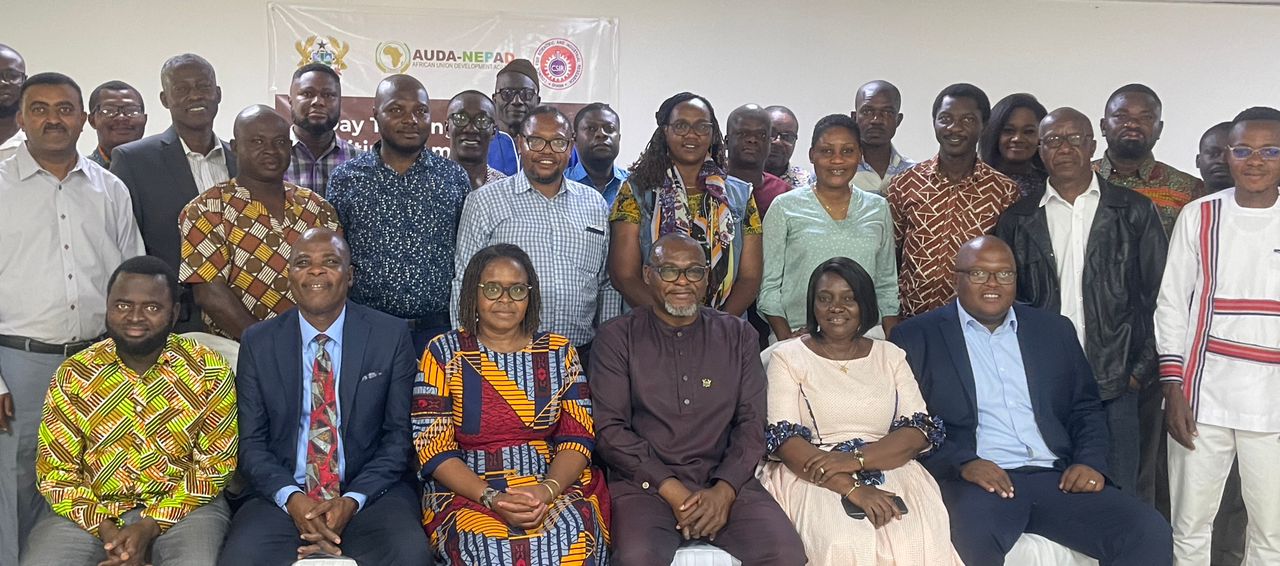|
Getting your Trinity Audio player ready...
|
ACCRA, GHANA – There is a need to create a science culture among the citizenry to boost public confidence in such emerging modern biotechnology sciences as genome editing, a workshop here has revealed.
In his opening remarks at the African Union Development Agency (AUDA-NEPAD) In-country Training Workshop for Genome Editing Communicators today in Accra, Ghana today, Mr. Kwamena Essilfie Quaison, the Director of Science, Technology, and Innovation of the Ministry of Environment, Science, Technology, and Innovation of Ghana underscored the need for comprehensive communication to benefit all citizens, particularly the general public.
“Ghana’s Genome Editing Communication and Advocacy document has been finalized and is ready for implementation. Today’s training workshop represents the first activity under the implementation phase and marks a significant milestone in the life of the Genome Editing Project.
“There is the need to create a science culture among the citizenry and create needed public confidence in such emerging modern biotechnology sciences as genome editing among sections of the Ghanaian society, cannot be lost on us. Citizens ought to be informed appropriately and adequately about the role such emerging technologies as modern biotechnology play in our development agenda and appreciate the science behind biotechnology,” Mr. Quaison said.
The workshop brings together the finest communicators, made up of journalists, public relations practitioners, information officers, and agricultural extensionists, who are expected to play a critical role in pushing the genome editing agenda in terms education and public awareness creation.
Mr. Quaison reiterated the need for newer and better skills in communicating the benefits of genome editing, especially in agriculture. He said citizens must appreciate the science behind genome editing and see it as a tool for the modernization and transformation of African agriculture.
Addressing workshop participants, Mrs. Florence Nazare, the Head of the Centres of Excellence, Management, and Coordination Unit of the African Union Development Agency (AUDA-NEPAD) Africa still needs to industrialize hence the need to shift to translative science through the adoption of cutting-edge technologies like genome editing.
“The citizenry should understand the full benefits of emerging technologies to enhance the productive side of agriculture. Genome editing provides solutions to ensure food security through enhanced agriculture production to improve livelihoods. Participants will share their experience and expertise to come up with a set of modules to improve communication modules,” Mrs Nazare said
Genome editing is part of the implementation of AU’s Second 10-Year Plan and also builds on the gains of the first 10-Year Plan. There is a need to communicate all elements to feed into the innovation ecosystem.






